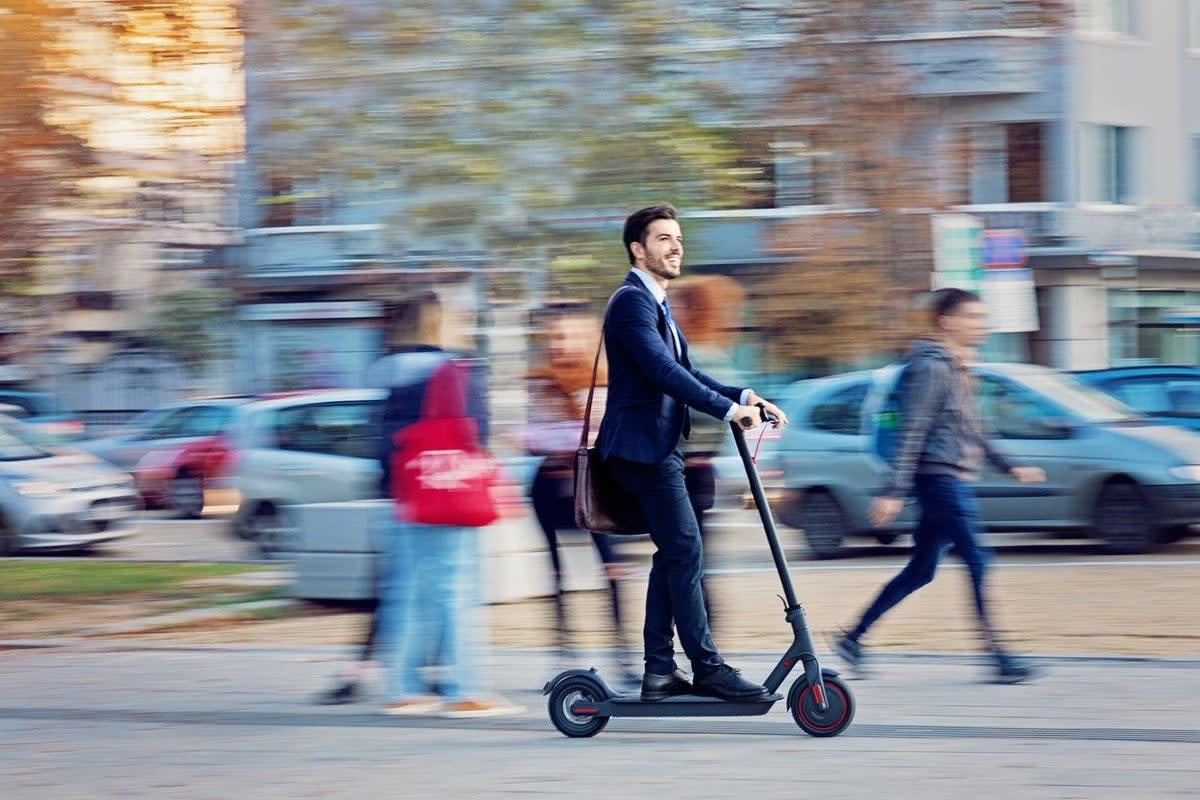Voices: Why the Paris e-scooter referendum is a victory for the visually impaired

“Terrifying. Just terrifying.”
This is how my friend Selina Mills describes e-scooters.
Mills has good reason to feel that way. She is legally blind, the author of the forthcoming Life Unseen: A Story of Blindness. The book is part memoir, part history of a group of people repeatedly marginalised.
Mills’ view, expressed in the book, is that this is still happening. Blind people are still being written out. She is right. This is something that affects all of us living with disabilities of whatever kind. We are the ghosts at the table when it comes to policymaking, greeted with tin ears when we moan.
It is because of the way disabled people’s interests are so often brushed aside that – having had time to think about it – I don’t feel the discomfort of my esteemed colleague Tom Peck when it comes to Paris’s referendum on those e-scooters.
I agree that referenda are a terrible way to make decisions on complex issues, which is what we elect and pay policymakers to do. In Britain, we know only too well how badly they can go wrong. We’re still living with the negative consequences of the Brexit vote.
But the Parisian “public consultation” on e-scooters, which saw roughly nine in 10 voters backing a ban, still counts as an all too rare win for disabled people (even if it is en passant because most of the voters probably weren’t thinking of these Parisians when they went to the polls). The result is worth cheering, because we get too few of those.
Consultations typically take a different form in the UK. Under the Equalities Act, policymakers are supposed to consider the impact of their ideas on various protected groups. And they are supposed to consult those groups.
Trouble is, in my experience, at the end of these exercises they often plough on regardless. Those with visual impairments face a similar danger when it comes to assessing the e-scooter trials currently taking place up and down this country.
Sure, this they are environmentally friendly means of transport. There is evidence to suggest that they can reduce car journeys. So less congestion and better air quality. Yay! But are the benefits sufficient to overcome the terror e-scooters can instill in people like Mills, to whom they are a frightening addition to the obstacle course of urban street furniture they face whenever they leave home.
Think benches, bins, postboxes, lamps. Worse still are the temporary obstacles that appear on familiar routes; bollards, holes in the pavement and rental bikes carelessly left in the middle of the pavement. Now, add a slim, relatively fast-moving vehicle, weaving in and out of people texting while they walk, and you have a potentially combustible mix.
The trials are supposed to have rules. In theory, the only legal way to use an e-scooter is by renting one in a trial area. There are age restrictions – users are supposed to hold a provisional driving licence. They are exhorted to travel, and park, with care and consideration for their fellow citizens. Trouble is, not everyone follows the rules.
True, e-scooters are by no means as dangerous when used irresponsibility as cars are when driven irresponsibly. Take a trip on London’s north circular and you are bound to witness stupidity that can be filed under the heading “ridiculous” given the steps one often has to take to avoid vehicles driven like Formula One cars.
However, that doesn’t make them safe, or sensible, given that people with visual impairments exist. And have rights.
If people like my friend are left terrified, then the costs of these things are too high. It’s that simple. Mills has been left wondering whether it’s worth using the Equality Act to file a lawsuit, like the one Doug Paulley won to enshrine – at least in theory – disabled people’s right to disabled spaces on buses. Perhaps that’s what it’s going to take. But lawsuits are expensive, time-consuming and stressful. Living with a disability is stressful enough as it is.

